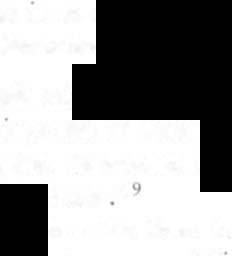i bc27f85be50b71b1 (219 page)
Read i bc27f85be50b71b1 Online
Authors: Unknown

unresponsive to treannenr and removal of the rejected organ is the
only way to stOp the reaction. Therefore, the recipient will need
immediate retransplantation to survive.6,12,21
2.
ACllte rejection is a treatable and reversible form of rejec-
tion that occurs within the fi rst year after transplantation. Almost
every patient has some degree of acute rejection after transplantation. T lymphocytes detect foreign antigens from the graft, become


Table 12-1. Immunosuppressive Drugs Used in Organ Transplanrarion
C!
...
immunosuppressive Drug
Action
Possible Adverse Effects
>
Corticosteroids (methylinhibit gene transcription for
Muscle loss and weakness, hypertension, hyperglycemia,
�
prednisolone [Solucytokines, which affect all
delayed wound healing, osteoporosis, weight gain, peptic
�
'"
Medral], prednisone)
immune responses
ulcers, cataracts, hypokalemia, mood swings, congestive
'"
Inhibit T-cell activation
heart failure
r
>
Used to reverse early rejection
6
Cydosporine (Neoral,
Inhibits immune responses by
Hypertension, elevated cholesterol, renal dysfunction, [remOl;
g
Sandimmune)
inhibiting T-ceil lymphokinc
sodium retention, hyperkalemia, hyperglycemia, pares
'"
production and cell-mediated
thesias, hepatic dysfunction, seizures, hirsmism, gum
"
"
immunity by blocking
hyperplasia, malignancy; long-term side effects: diabetic
:t
transcription of early
neurotoxicity, decreased bone density
i2i
activation genes
n
>
Used to prevent, rather than
,...
reverse, acme rejection
Tacrolimus (FK506,
Inhibits T-Iymphocyte activation
Tremors, headache, hepatotoxicity, hypertension,
>
�
Prograf)
Used to prevent acute rejection
hyperglycemia, hyperkalemia, constipation, diarrhea,
�
nausea, vomiting, renal dysfunction, mental status changes
Azathioprine Omuran)
Inhibits lymphocyte proliferation
Bone marrow suppression, heparotoxicity,
leukopenia,
Inhibits DNA and RNA synthesis
pancreatitis, cholestasis
Blocks antibody production
Suppresses emire immune system

Mycophenolare mofetil
Inhibits T· and B-Iymphocyte
Nausea, vomiting, diarrhea, leukopenia, neutropenia, sepsis,
(CelICepr)
proliferarion
abdominal pain
Suppresses anribody formation
Inhibits de novo parhway for
purine synthesis
Muromonab-CD3
Inhibits T-cell function and
Chest pain, fever, nausea, vomiting, diarrhea, pulmonary
(Orrhodone OKT3)
proliferation
edema, dyspnea, malignant lymphoma, rigors, malaise,
Used only for acute rejection that
meningitis
is refractory to other agents
Sources: Adapted from JM Black, E Marassarin-Jacobs (eds). Medical-Surgical Nursing: Clinical Management for Continuity of Care (5rh ed).
Philadelphia: Saunders, 1997;644-645; L Bucher, S Melander. Crirical Care Nursing. Philadelphia: Saunders, 1999;343; and data from E
Winkel, VJ DiSesa, MR Costanzo. Advances in heart rransplantarion. Dis Man 1999;45(3):77-79.
o
,.
C)
,.
Z
�
�
!;:
� o z
Cl




706
ACUTE CARE HANDBOOK FOR PHYSICAL TIIERAPISI"S
sensitized, and set the immune response into action. Phagocytes,
which are attracted to the graft site by the T lymphocytes, damage
the inner lining of small blood vessels in the organ. This causes
thrombosis of the vessels, resulting in tissue ischemia and eventual
death of the graft if left untreated '
The fi rst signs of acute rejection may be detected within 4 to 10
days postOperatively.6,7.9 The actual manifestations of rejection vary
with the affected organ. General signs and symptOlllS of acute rejection include the following9:
• Sudden weight gain (6 Ib in less than 3 day )
• Peripheral edema
• Fever, chills, sweating, malaise
• Dyspnea
• Decreased urine output, increased blood urea nitrogen (BUN)
and serum creatinine levels
• Electrolyte imbalances
• Increased blood pressure
• Swelling and tenderness at the graft site
Early intervention is the key to reversal of acute rejection. Depending on the severity of rejection, treatment varies from a new dose of intravenous steroids, to a change in current immuno uppressive therapy, to a to-day course of the murine monoclonal antibody muromonab-CD 3 (Orthoclone OKT3). '9 Some immunosuppressant
medications used to treat acute rejection include corticosteroids
(prednisone), cyclosporine (Neoral), tacrolimus (Prograf), azathioprine (Imuran), muromonab-CD 3 (Orthoclone OKT3), cyclophosphamide, anti thymocyte globulin, and antilymphocyte globulin.'
3.
Chrol1ie reieetioll of the graft occurs after the first year of
transplantation. It is believed to resulr from immune complexes of
immunoglobulin M and complement that form in the blood vessels
of rhe organ. Deterioration of the graft is gradual and progressive.
Immunosuppressive drugs do not stOp this type of rejection. The
more frequent and severe the rejection episode, the poorer the prognosis. Increasing immunosuppressive medications may slow the pro-


